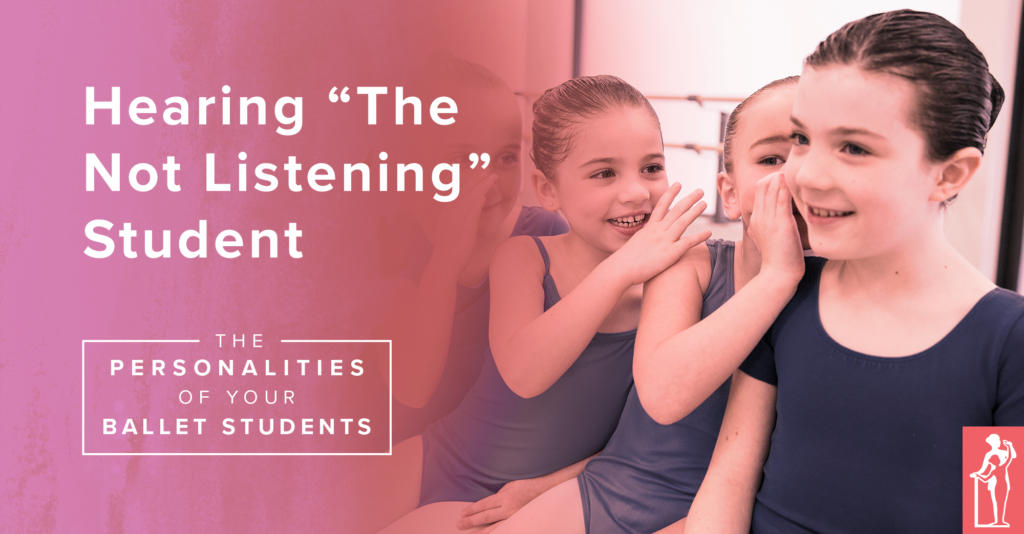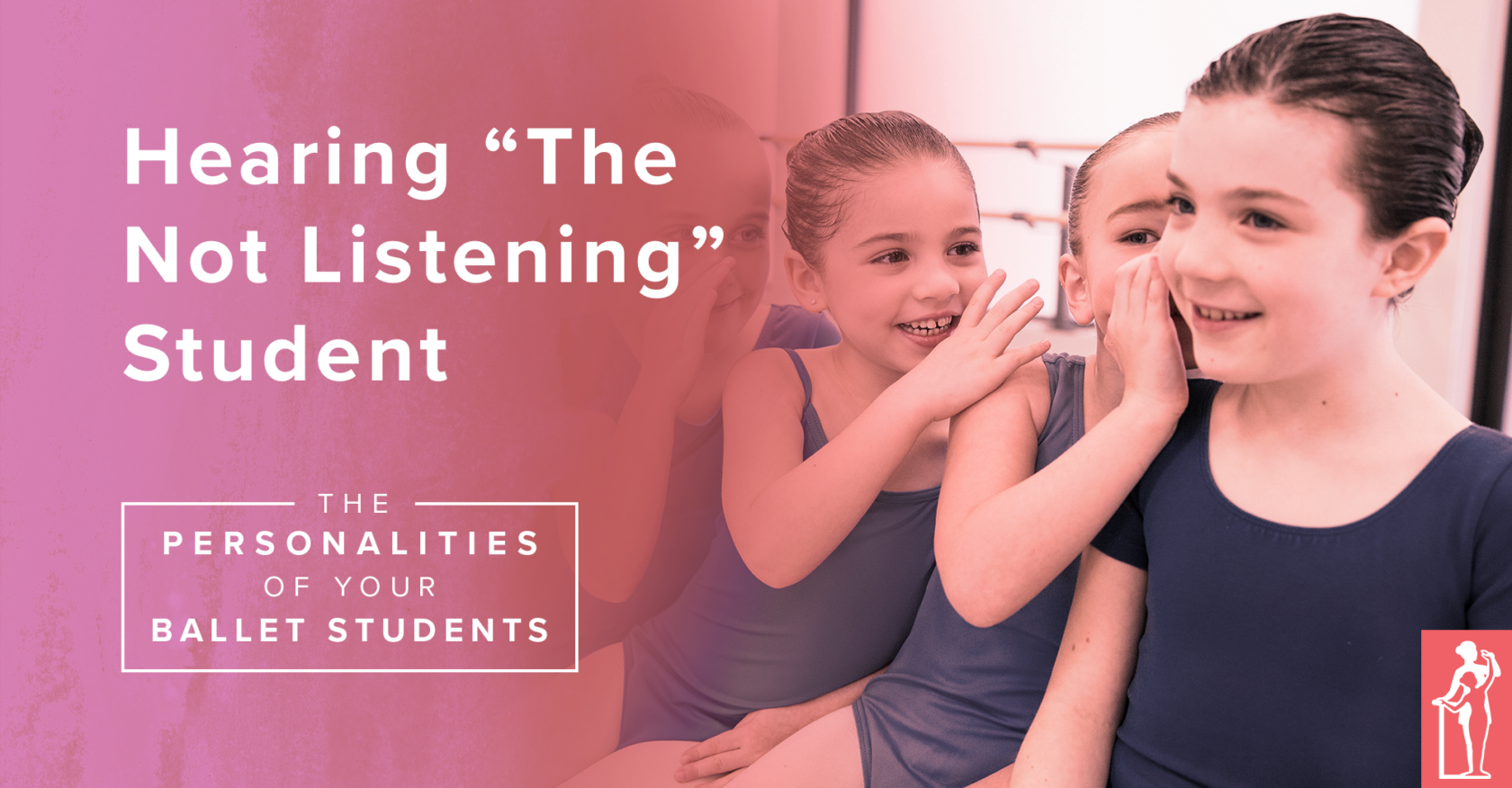
Even as the words are coming out of your mouth, you can see all the signs that her mind is trailing off in some other direction. The student that simply will not stay engaged with the lesson is particularly puzzling (and patience-testing). Most teachers will just get offended and even angry at this type of student. Others have absolutely no idea how to handle them!
Not Listening
Most commonly, with this type of student, you will see a vague “I know you’re talking to me, but I either don’t understand or don’t really care” look on her face. It can be very difficult to find a way to connect with “Not Listening,” and it’s very hard to tell whether she is actually enjoying the class or finds it entirely boring.Negatives
The obvious negative is that this student will rarely know what’s going on in the class. She will need things to be explained to her several times. She will almost never be ready to do her preparations, and you will often need to remind her to get to her place when dancing in the center. Your time is drained because of her lack of focus. Somehow, Not Listening can become a magnet to the other students. Whatever world she is existing in becomes much more attractive, and the other students join in whatever merriment exists there. This plays out before you as you see the students giggling together, talking to each other right over your voice, or even walking to another place in the room together. When you come to her and tell her she can’t do this, she looks at you like what you’ve just said is complete nonsense, or she gives you the beloved “not listening” stare.Positives
If Not Listening truly loses interest and wanders away mentally, it could mean that you have over-explained the step or concept, and she is ready to move on to something else. As fascinating as it is for us teachers to explain the functioning mechanism of the sartorius muscle, 9 year olds need the basics explained and then they need for us to move on. Too much detail will bore them. Not Listening will do you the favor of letting you know immediately.
Or her “not listening” response can just be because she doesn’t understand. Be careful when this is the case. You must watch her carefully and try to gather all you can from her as you speak. As a child, her facial expressions tell all. She will often put exactly how she’s feeling on her face for all to see.
Not Listening can actually be a very strong leader. She is often a great friend, loyal, and fun-loving. She holds the ability to create a comfortable atmosphere for everyone. You may also find that she loves to be creative. Whenever your class switches over to creative dance, mime or a short game, she will come alive and happily share her ideas. Or, she may not be able to listen well, but when the music comes on, she brings a spirit of brightness and she loves to express herself through dance. We can work with that!
So, How Can I Make Her Listen?
Change things up! There are things that you can do to ever so slightly change your lesson that will catch her off guard. This is exciting for Not Listening because the mundane becomes new! Of course, you cannot do this every week, since the students need some consistency, but you can try this on a week when the listening seems to be especially lacking.
Give her individual attention. Perhaps ask her a direct question or give her specific praise. She likes to feel responsible for things. Doing things helps her to stay involved in the lesson. Standing still and listening is what is hard for her, so let her move and express herself. Also, it really helps to have frequent “breaks”, so that your students can rest their brains and bodies from strenuous activity. Let her lead. She will like to do things for you, like bring you things or help you hand things out. Let her lead the group around the room for marching, or let her demonstrate things for fun sometimes.Find Out What Makes Your Students Tick
When the student truly doesn’t care, it’s especially tough. You can’t teach how to care. Passion in your teaching can be truly authentic and genuine, but just because you are feeling it doesn’t mean they are. Keep a long term mindset and remember that if you maintain your passion over time, it is more likely to eventually rub off. If you aren’t actively maintaining your positive mindset and transmitting passion, you are likely transferring frustration.
So, find out what makes your students tick. Some of them would benefit from a change of pace every once in a while. Some may be visual learners and want to watch a video of a professional dancer demonstrating a dance step. Others are the more hands-on/leadership types who would benefit from working in groups and solving problems together. Still others just need a chance to perform (See “The Dance Teacher’s Secret Weapon”). When the class feels that they are heard and that the teacher cares about their learning, it’s much more likely they, themselves, will be inspired.
Read about the other personalities . . .
DISCLAIMER: Not all students can be categorized in this way. It is not my intention to box anyone in to a certain personality type, and not all the advice I give in this article will work on every student. Each one is made up of a different blend of personalities and will respond differently the advice given here.


Comments
Britney says
Thanks, Kim, love this!
Add Comment